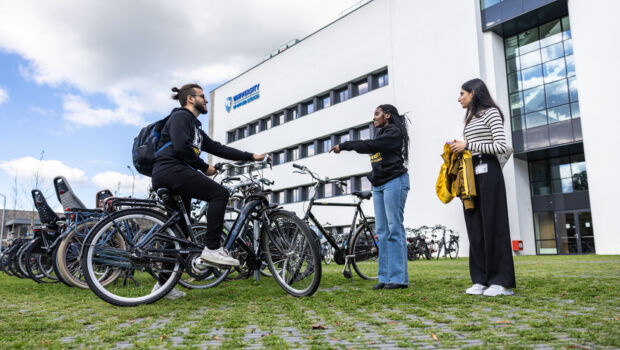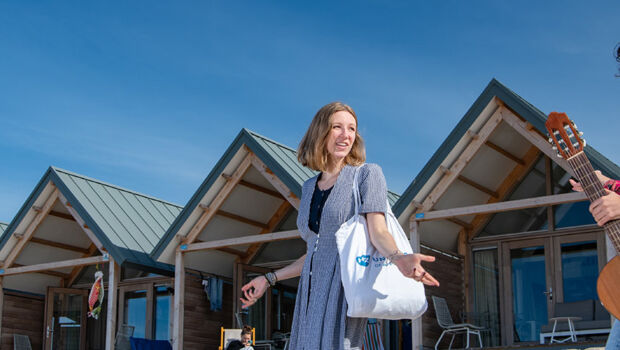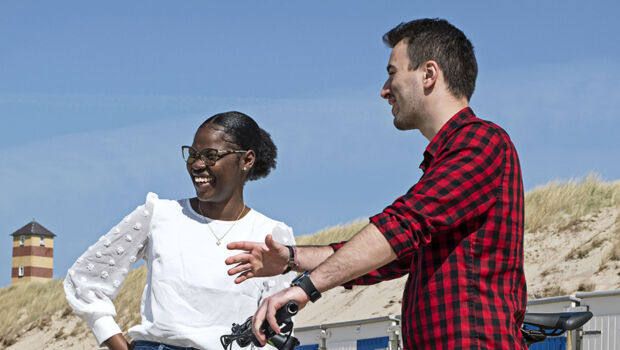Choosing to study in the Netherlands is an exciting decision, but it can also be a bit daunting when faced with the variety of educational options. One of the first choices you’ll need to make is which type of institution best suits your learning style and career goals: a research university or a university of applied sciences.
Both offer high-quality education, but each has a different focus and approach to teaching. So, how do you decide which one is right for you? In this blog, we'll break down the key differences between these two types of universities to help you make an informed decision.
Get the free guide to the Dutch higher education systemDon't worry, it's simpler than you think!
The Dutch higher education system is not as complicated as it may first appear. Chances are, it is quite similar to the educational structure in your home country.
The most important question to consider is: How do you want to learn? It's important to remember that university life is vastly different from high school, especially if you’re coming from abroad to study in the Netherlands. That’s why you’re here, learning about how this educational system works.
Research universities vs. universities of applied sciences
In the Netherlands, there are two types of higher education institutions: research universities (known as "universiteit" in Dutch) and universities of applied sciences (known as "hogeschool"), like HZ University of Applied Sciences.
Practical learning vs. theoretical learning
Their approach to education is the most crucial aspect to consider when deciding between the two types of institutions:
- Research universities focus on theoretical, research-based learning. This means you'll spend a lot of time studying academic theories, analysing scientific articles, and engaging in critical discussions. These universities are ideal if you enjoy deep academic research and aspire to careers in fields like science, law, or academia.
- Universities of applied sciences, such as HZ University of Applied Sciences, combine theoretical knowledge with practical application. You'll learn the necessary concepts and theories, but you'll also apply them in real-world scenarios, often through internships, group projects, and hands-on experiences. This route is perfect for those who prefer learning by doing and are aiming for careers in specific industries, such as business, engineering, or healthcare.
What does this mean?
If you choose to study business, for example, you won't just learn about creating a business plan, you will actually draft one and explore every step needed to start a company. You’ll learn about staffing, market research, and profitability, all as part of a hands-on project. This is a typical first-year project for International Business (IB) or Tourism Management (TM) students.
For science students, after learning about environmental chemistry, you might find yourself on a boat, collecting water samples for analysis. Or, after studying land surveying, you could be out in the field conducting a survey with professional equipment. This is the type of real-world experience that Water Management or Civil Engineering students gain.
In short, you learn by doing—whether through group projects, assignments, field trips, company visits, or lectures from professionals in your field.
Educational structure
Another thing to consider is the programme length and structure:
At research universities, most bachelor’s programmes are three years long. These programmes are typically more flexible, allowing students to shape their own schedules and choose electives that align with their interests. At universities of applied sciences, bachelor’s programmes usually last four years and include a mandatory year of internship experience. The programmes are more structured, with clear timelines and a fixed curriculum designed to prepare you directly for the workforce.
Learning environment
And finally the learning environment between the two institutions are quite different:
- Research universities often have larger class sizes, particularly in lectures, where hundreds of students might be present. The learning environment tends to be more autonomous, with an expectation that students will manage their own time and studies.
- Universities of applied sciences offer a more intimate learning experience, with smaller classes and more personalised attention from lecturers. The emphasis is on collaboration, with many opportunities for group work, practical assignments, and direct contact with industry professionals.
Which type of university is right for you?
Deciding between a research university and a university of applied sciences comes down to your preferred learning style, career goals, and personal preferences:
- If you are driven by curiosity, enjoy reading, analysing, and researching, and are aiming for a career in academia, research, or specialised professions, a research university may be the right fit for you.
- If you prefer a hands-on approach, enjoy applying what you learn in real-world settings, and are keen on gaining practical experience to enter the job market directly after graduation, a university of applied sciences could be the better choice.
Final thoughts
Choosing the right university in the Netherlands is all about finding the path that aligns with your learning style and career aspirations. Whether you opt for the academic focus of a research university or the practical approach of a university of applied sciences, you’ll receive a high-quality education that opens doors to a variety of opportunities.
Still unsure which is the best fit for you? Download our free brochure for more insights, or explore more resources on studying abroad in the Netherlands.







